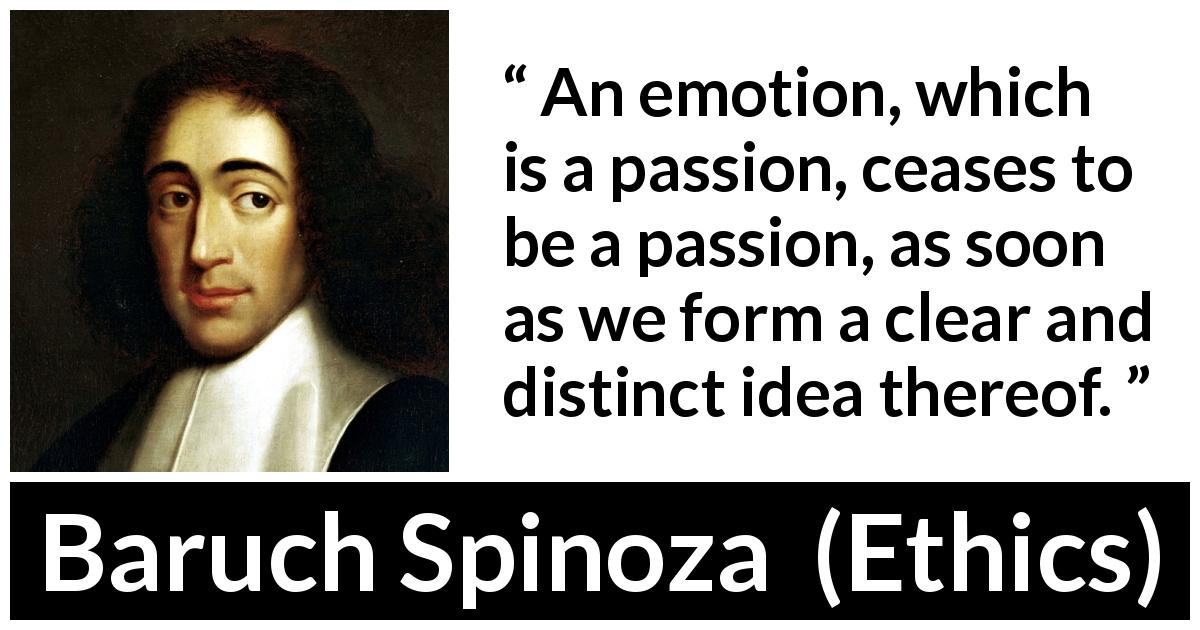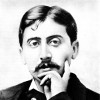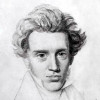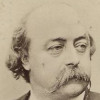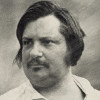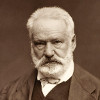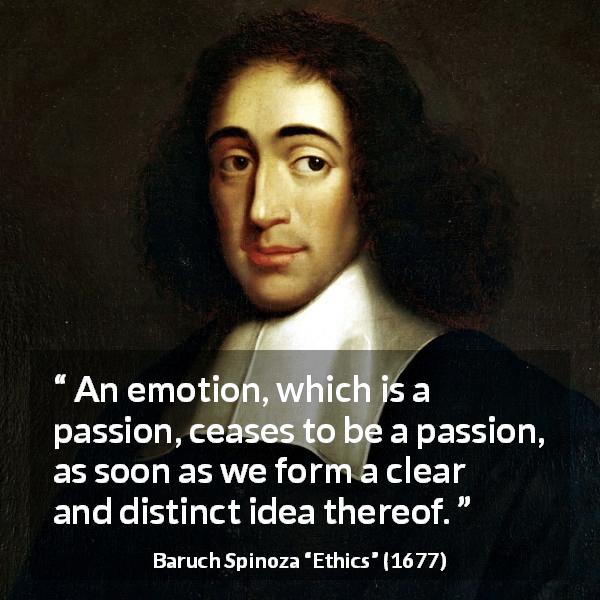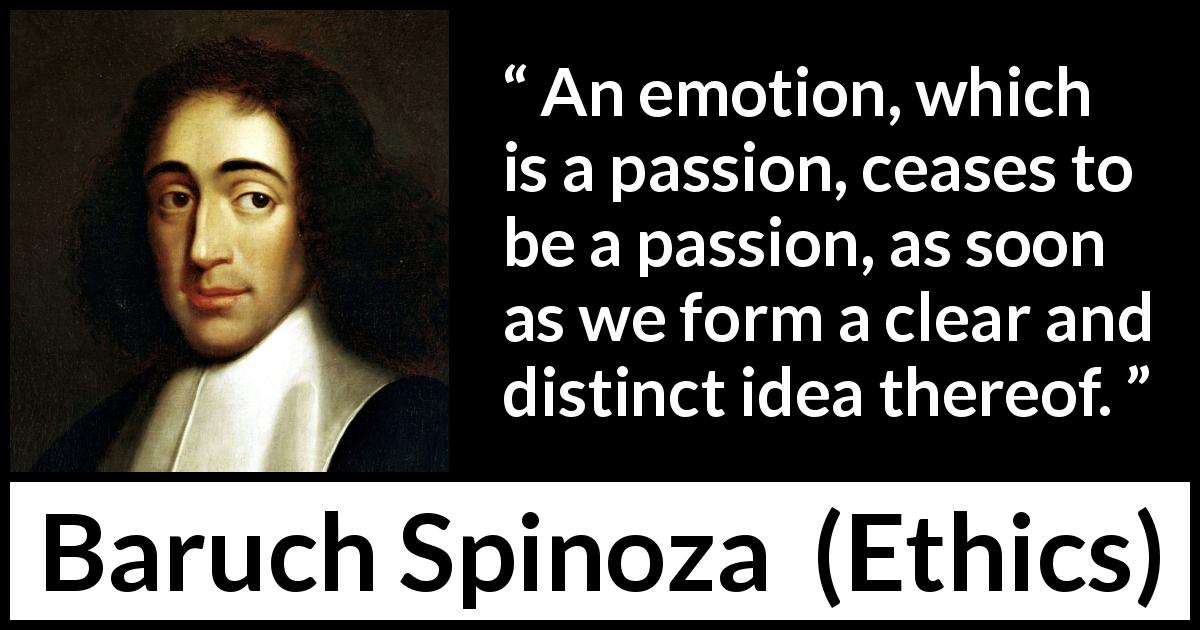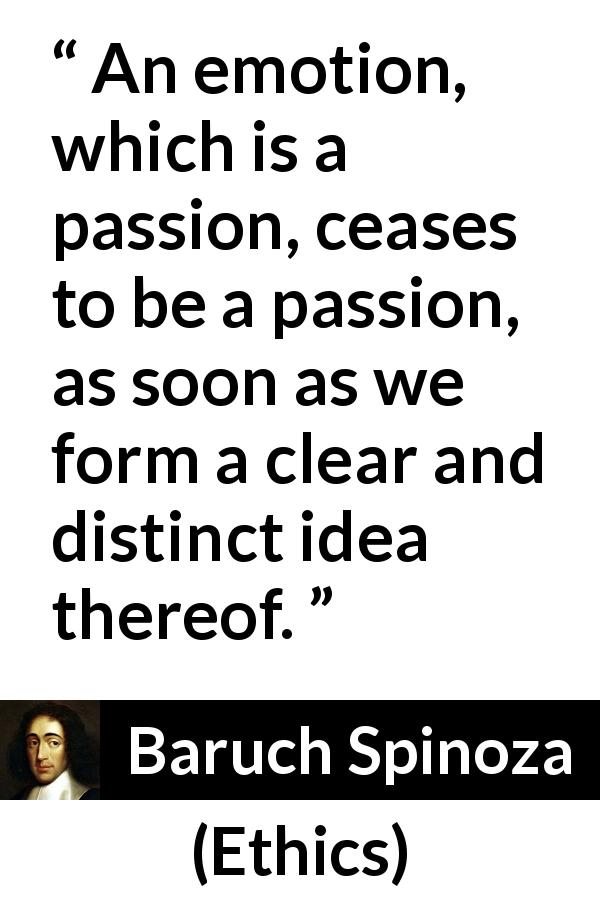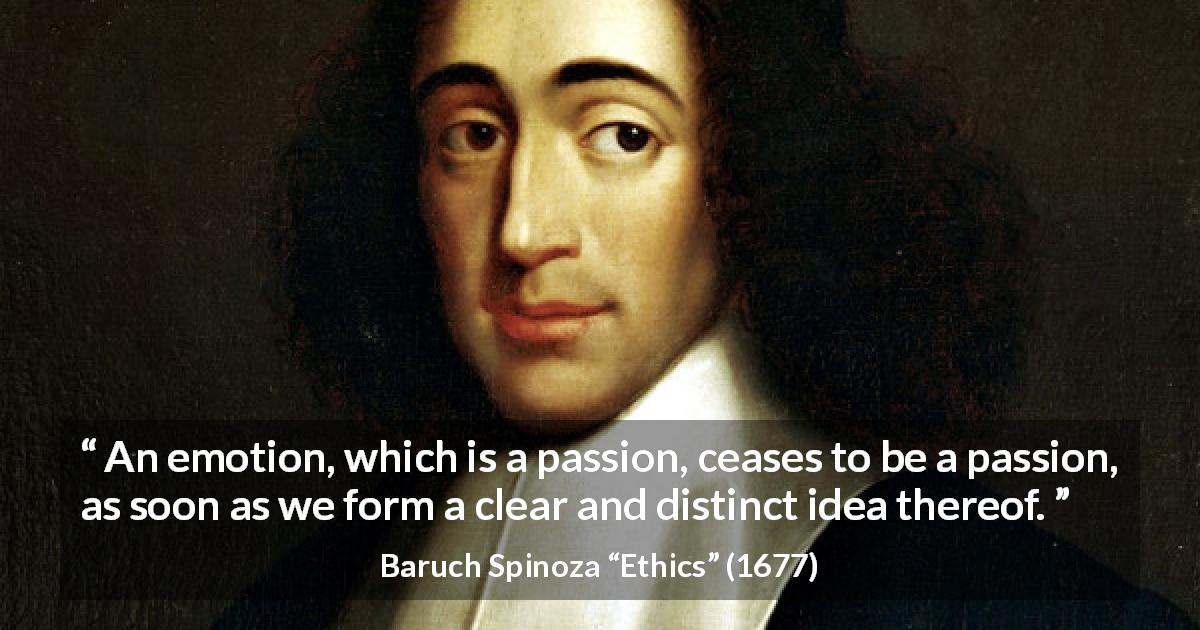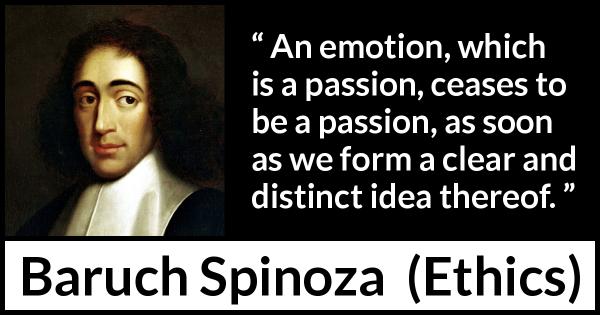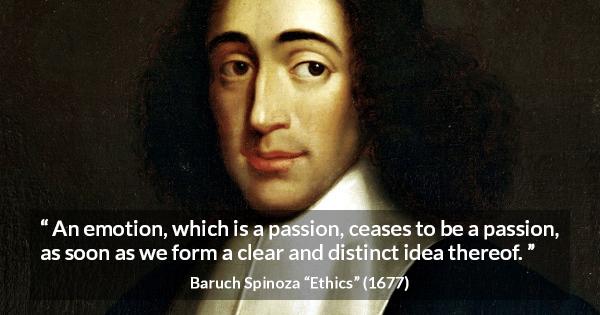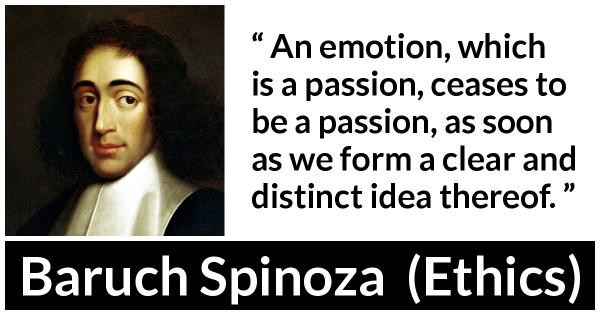“ An emotion, which is a passion, ceases to be a passion, as soon as we form a clear and distinct idea thereof. ”
Baruch Spinoza, Ethics (1677). copy citation
| Author | Baruch Spinoza |
|---|---|
| Source | Ethics |
| Topic | passion clarity emotion |
| Date | 1677 |
| Language | English |
| Reference | |
| Note | Translated by R. H. M. Elwes |
| Weblink | http://www.gutenberg.org/files/3800/3800-h/3800-h.htm |
Context
“of the Emotions, vi. vii.) ; wherefore, when this cause is removed, the reality of love or hatred is removed with it; therefore these emotions and those which arise therefrom are destroyed. Q.E.D.
PROP. III. An emotion, which is a passion, ceases to be a passion, as soon as we form a clear and distinct idea thereof.
Proof.—An emotion, which is a passion, is a confused idea (by the general Def. of the Emotions). If, therefore, we form a clear and distinct idea of a given emotion, that idea will only be distinguished from the emotion, in so far as it is referred to the mind only, by reason (II.” source
PROP. III. An emotion, which is a passion, ceases to be a passion, as soon as we form a clear and distinct idea thereof.
Proof.—An emotion, which is a passion, is a confused idea (by the general Def. of the Emotions). If, therefore, we form a clear and distinct idea of a given emotion, that idea will only be distinguished from the emotion, in so far as it is referred to the mind only, by reason (II.” source
